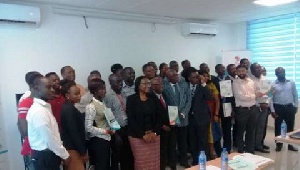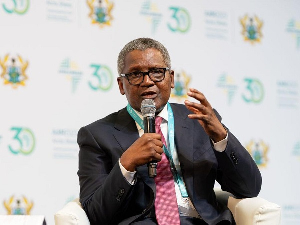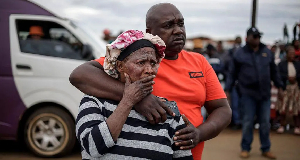The Centre for Regional Integration in Africa (CRIA) has unveiled four research reports about matters regarding integration in Africa, highlighting challenges and prescribing solutions for an inclusive integration process for quicker economic growth on the continent.
The reports included Regional Integration Issues Forum (RIIF) Network Planning Meeting, RIIF Policy Dialogue, RIIF Network Monitoring Team and Issues in African Regional Integration, 2017.
The CRIA unveiled the reports in partnership with the African Capacity Building Foundation (ACBF), GIMPA, WACSI and AFRINVEST on GIMPA Campus in Accra.
Professor L. Tlou, CRIA Associate Director, said the Centre partnered ACBF to establish RIIF - a mechanism to facilitate an interface between policymakers and national stakeholders of Africa’s regional integration process.
She said the mechanism was done through dialogues that promoted awareness creation, knowledge building and consensus building on national development and regional policy issues.
She noted that regional integration (RI) and national agenda ought to be seen as one accord to promote development, but there has not been enough pace at the national level because RI is not seen as fundamental to economic growth.
The slow implementation of regional integration policies in the ECOWAS sub region has been of great concern to member states and national populations of the years.
The worry has grown to such an extent that it has provoked frustration and generated apathy among some government officials, business community members, civil society groups, and citizens within the sub region.
“Many people are beginning to question the relevance of the regional economic community to their lives, said Professor SKB Asante, Executive Director of CRIA.
He said there were lack of an inclusive, people-centred regional agenda and implementation process aggravated by member-states’ failure to partner effectively with non-state stakeholders in implementing the regional integration agenda together with national development policies.
Professor Asante expressed worry that issues about regional integration were not captured during the presentation of national addresses on states and budgets, while reports of regional meetings were not shared.
“We in Africa meet and talk about regional integration but when we go for meetings, the reports are not even shared,” he said.
He said the Centre was of the view that without well-informed stakeholders, particularly those in the productive sector, business community and civil society actors on regional issues, member states of sub regional groupings would have difficulty moving to more advanced levels of national and regional development.
He added that if those bottlenecks were not removed member states would continue to struggle for sustainable solutions to national issues with regional implications.
Countries in the African region are faced with challenges pertaining to intra-regional trade and effects of globalisation, industrialisation, good democratic governance, gender inequality and the feminisation of poverty, migration and development.
The continent is also plagued by youth unemployment; light arms proliferation; increase in crime rate; conflict, terrorism and human security; drug and human trafficking; environmental degradation; monetary union delays.
The RIIF reports are expected to be shared with stakeholders as part of moves by CRIA to deepen their understanding and knowledge about regional integration matters to spur faster economic growth of the African continent.
General News of Tuesday, 29 August 2017
Source: GNA













